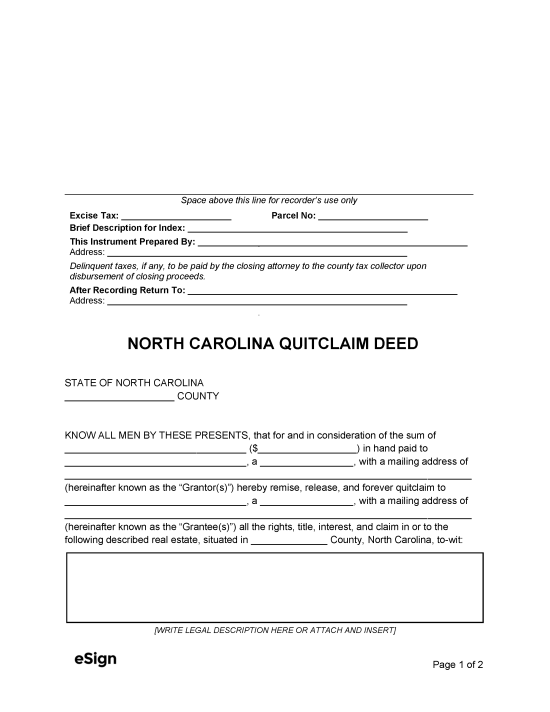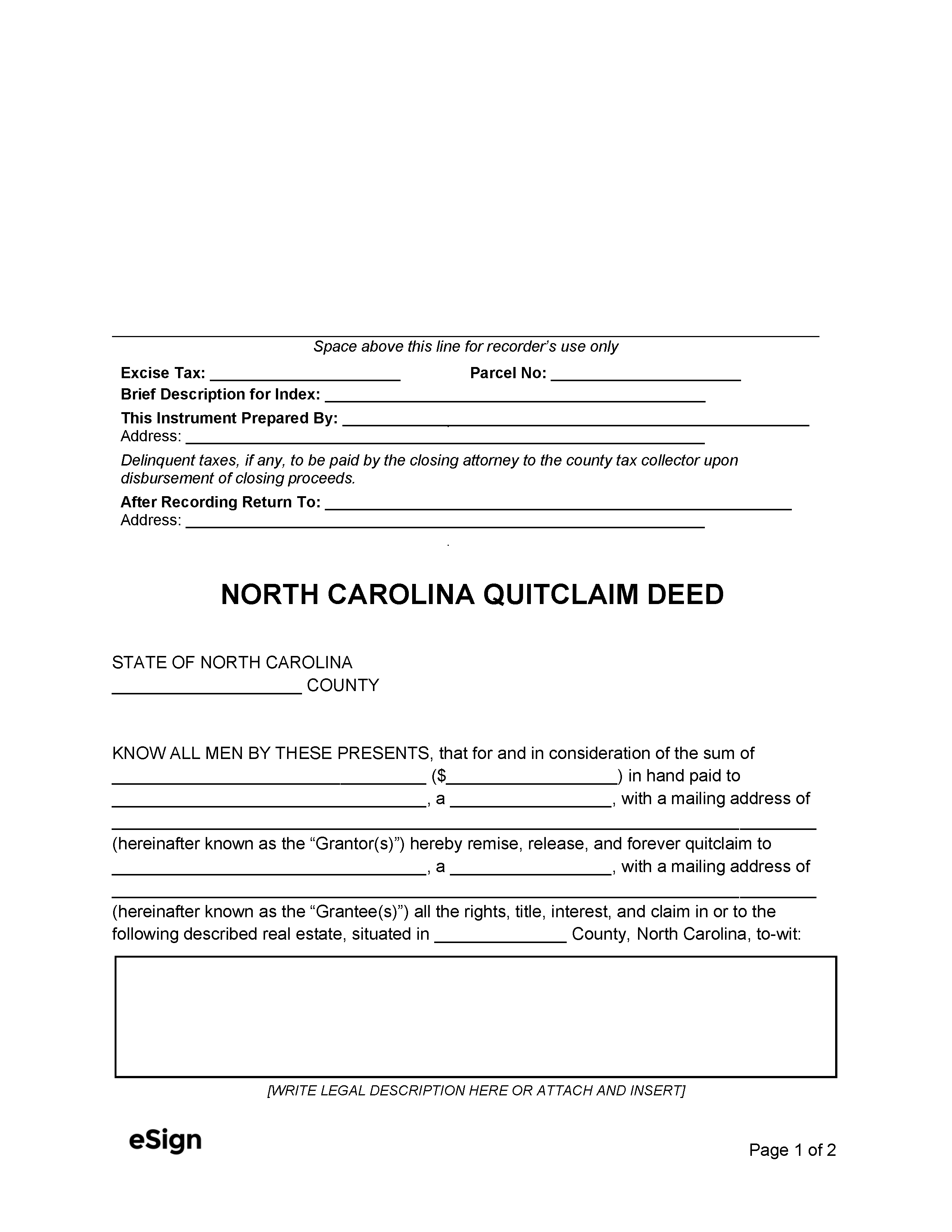Recording Details
- Signing Requirements – The grantor must have their signature notarized.[1]
- Where to Record – Register of Deeds[2]
- Recording Fees – $26 for the first 15 pages + $4 for each additional page (as of this writing).[3]
Formatting Requirements
North Carolina quitclaim deeds must be formatted as follows[4]:
- Paper: Must be either 8.5 x 11 inches or 8.5 x 14 inches.
- Margins: At least 3 inches at the top of the first page and 0.5 inches on every other margin.
- Ink: Must be black, typed or printed.
- Font: Must be at least 9 points.

